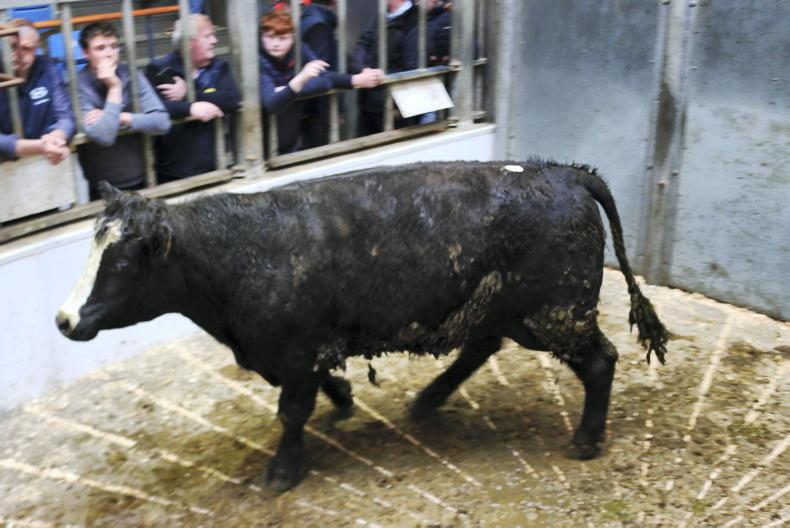The mart trade has twisted up another notch this week, with light bullocks and light weanlings seeing the biggest lift in price.
Grass buyers and live exporters are clashing again this week, driving prices in the light weanling rings in particular.
Top-quality bull weanlings in the 200kg to 300kg weight bracket moved up to €5.65/kg this week, with lighter bullocks also improving by 20c to 25c/kg.
Organic issues
Organic cattle numbers for grazing are in very short supply, with a number of special organic sales attracting very low numbers over the last few weeks.
The problem is twofold. A lot of suckler farmers who converted to organic production either reduced cow numbers or got out of cows altogether.
This means there are less suckler-bred weanlings on the market.
Purchasing dairy-bred stock isn’t an option for organic farmers, as artificial milk replacer isn’t allowed to be used in organic systems.
This means organic farmers who are summer grazing are confined to suckler-bred stock.
The second problem is that given the high prices in conventional sales all spring, many organic farmers have chosen to sell their cattle in conventional sales. This is leading to a shortage now when organic farmers are in the market for grazing cattle.
PSRA meeting
There was a mixed reaction to Sunday’s Property Service Regulatory Authority (PSRA) meeting on Sunday in Athlone.
All marts were summoned to the meeting with the PSRA doubling down on the requirements of marts to have sufficient funds in their client account to cover any credit that they let out.
For some marts, this isn’t a problem, but for others the rise in value of cattle this spring is proving difficult to finance.
Selling 500 cattle in a day has seen some marts’ turnover mushroom by over €500,000 in a day. This has put more pressure on servicing a client account if there is credit being issued to some customers.
The easy thing to do would be to pull all credit, but it’s not that simple, in that a lot of larger customers rely on this credit to bankroll their business for next-day killing, etc.
Some say this is OK, more say it’s not acceptable. Either way, the increase in value of cattle being sold has increased the risk for marts and now is probably the right time to talk about helping marts with risk.
Some mart managers talk – others don’t – but surely in this day and age there should be some sort of database to help avoid a situation where a customer has run up a big bill in one mart, refuses to pay and then goes to another mart and does the same.
Some will say GDPR regulation won’t allow this, but the same system works in bank lending, so surely some sort of system could be devised for marts.
Some marts are now running over €10m/month turnover, with larger mart groups on much more. If something goes wrong in the future and a big player goes down, a lot of people will be asking the question, why didn’t we do something when we could.






 This is a subscriber-only article
This is a subscriber-only article










SHARING OPTIONS: